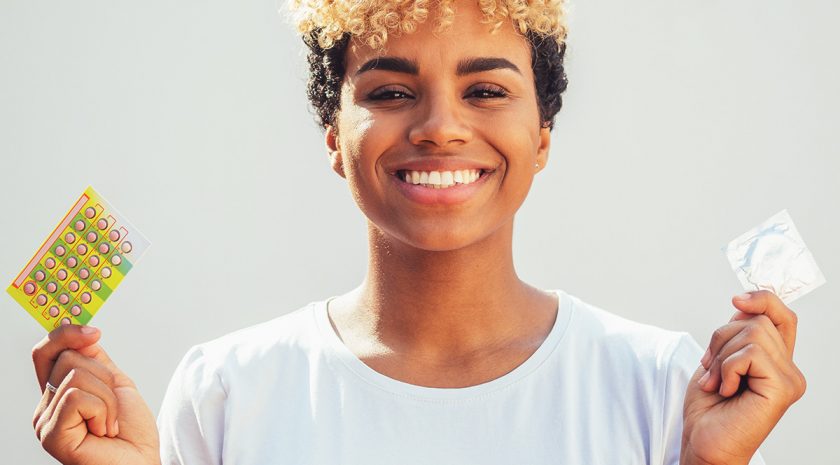
Having sex for the first time usually doesn’t look like the sex in movies (or porn for that matter). People often get caught up in the ‘sexpectations’ and it may not be anything like the reality of the awkward, funny and confused sex-for-the-first-time experience.
Everyone will have a different experience, whether it be positive, a little uncomfortable or just plain strange. The part in movies and porn where people fall into bed for the first time and simultaneously orgasm is actually incredibly rare.
So when you do choose to have sex for the first time it’s great to be prepared.
What is sex?
You might think the act of sex is just penis in vagina or penis in the anus. However, sex can be any kind of intimate contact including things like oral sex, mutual masturbation, using sex toys, sexting, phone sex and more. Sex can be whatever you and your partner/s want it to be as long as everyone consents.
Ask yourself “Am I ready?”
Sometimes there can be pressure to just ‘get it out of the way’ so it is important to have open conversations about how you’re feeling and if you feel ready to have sex. Talking to someone close to you such as a trusted family member, counsellor or friend can be helpful. If you are planning to have sex with someone specific, it’s a good idea to have a conversation about both of your expectations and what you are consenting to.
Ask yourself, am I doing this because I want them to like me/I want to be in a relationship/I don’t want to seem like a prude if I continue to wait?
Only you have the right to decide when you’re ready to have sex, no one else should try to convince you otherwise. Therefore, your answer to “Am I ready?” should be “I feel comfortable to have sex because I want to, not because of what anyone else wants or thinks”.
I feel comfortable to have sex, what is the next step?
The key to good sex is safer sex, which includes consent, protection against infections and contraception (if there is a risk of pregnancy).
Before you have sex, you need consent! Consent means to agree to something or give permission. Consent must come before any sexual activity of any kind and throughout sex. This means any type of contact (touching, kissing) or sex (fingering, sexting, oral sex etc). Consent means you have the right to change your mind at any point. Speak up and say no if you’re no longer comfortable. Asking your partner “is this ok?” and having them ask you before trying anything new is the key to consensual, pleasurable sex.
Another factor to consent is the influence of alcohol and drugs. Being under the influence can affect a person’s ability to give consent in a sound state of mind. If you continue to have sex with someone who cannot give consent it is a criminal offence.
Some people use drugs and alcohol before having sex to reduce anxiety but these also lower people’s inhibitions, meaning they might make decisions they wouldn’t make when sober and then regret them. Alcohol and drugs can actually reduce people’s ability to be aroused, get erections and orgasms, so they can make sex less enjoyable.
Sex is also less enjoyable if you are worrying about getting pregnant or getting a sexually transmitted infection (STI).
Condoms are your best protection against infection. When used correctly condoms are highly effective at reducing the risk of STIs and are very important in reducing the risk of HIV. They can also prevent pregnancy if used for any penis/vagina contact but are less effective than other forms of contraception such as implants, IUDs and the Pill. Condoms and dental dams also reduce the risk of STIs during oral sex.
For more information on contraception read: Choices in Contraception.
What should I expect?
Everyone’s first time is different, and even after that, every time you have sex and with every new partner, sex can vary. Although it might feel embarrassing, it’s a good idea to talk with your sexual partner before and during sex about what is and isn’t feeling good.
Your partner isn’t a mind reader and can’t know what you enjoy unless you tell them. Also you need to know what feels good to you and it’s a good idea to practice on yourself by masturbating to figure out what works for you.
It’s important to remember that:
- Yes, sex can be uncomfortable for the first time but shouldn’t be painful
- Anal sex may be difficult to achieve the first time so go gently and don’t aim to have full penetration on your first try
- Lubricant or lube is great to help things be a little smoother and enjoyable for both vaginal and anal sex
- Some people with a vagina may bleed the first time they have penetrative sex as their hymen stretches or tears BUT this doesn’t always happen and isn’t a sign of “virginity”
- It may take a while for sex to feel good or achieve an orgasm
- You may not orgasm at the same time as your partner or at all and that is okay
- People with a vagina and clitoris often need clitoral stimulation to orgasm rather than vaginal penetration only
- It is normal to worry about your performance but remember sex isn’t a competition it’s an experience
What should I feel or look like after sex?
This may come as a shock but there is no “post-sex-look” nor is there a “glow” about the person. Your body does not change after you have sex. However, you may experience some tenderness around the genital area, which is a normal physical response. Some people with a vagina will experience thrush or a urinary tract infection after sex and if there is ongoing itching, a new discharge or stinging when you pee then you should see your GP or sexual health clinic. Bleeding from the bottom can occur after anal sex but should stop after the first couple of times. If bleeding continues beyond that or gets heavier, you should see a GP and avoid any more anal sex until they have checked it out.
If you had sex or are thinking about having sex and have any concerns then contact your GP or SHINE SA. You can call our free Sexual Healthline on 1300 883 793.
– Dr Amy, SHINE SA
Need to know more about consent?
For more information on the age of consent in South Australia read our Sexual Health and the Law for Under 18s Fact Sheet.









